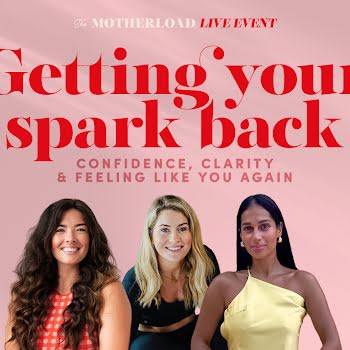What a growing women’s celibacy movement can teach us about desire
While male incels believe they are entitled to sex, the women’s celibacy movement is proving that sex is never women’s duty.
Ten years ago, mainstream culture was unfortunately introduced to the term ‘incel.’ Short for ‘involuntary celibate’, the term had rose to prominence online where subcultures of mainly white, straight men expressed their bitterness as not being seen as desirable by women they wanted, and in these groups, misogyny festered and grew as young men expressed their simultaneous hatred of and sense of entitlement towards women.
The term became known worldwide after 22-year-old Elliot Rodger, a self-proclaimed incel, murdered six people and injured fourteen others in Isla Vista, California, before killing himself. He left behind a 137-page manifesto where he expressed his rage and resentment of never having had sex, and also uploaded a video justifying his plans to target Isla Vista, saying that he wanted to “punish” women for their lack of interest in him and other incels. The event and Rodger’s manifesto started a years-long media interest in incels, exploring the misogyny that drove it and can be seen as being connected to and having inspired current misogynistic online trends such as influencers like alleged rapist Andrew Tate who claims that women are objects; and the increase in discourse about ‘alpha men’ and traditional gender role that view women as sexual objects who should submit to men. All are rooted in the deeply sexist and dangerous view of women being less than men, and display a shocking sense of entitlement to sex and women’s bodies – attitudes that are now being supported in systemic ways, as Republicans in the United States are not only revoking abortion rights nationwide but are now threatening American women’s access to general contraception, which will result in women having unwanted pregnancies.
While ‘incel’ is now understood to be associated with maleness and misogyny, there’s a rising interest in celibacy among women which can be seen as related to the incel movement, though completely different in aim, attitude and philosophy. Women are consciously choosing to not have sex with men in order to protect themselves, reconnect with their own desire and combat misogynistic ideas about their bodies and sexual beings – and the movement is growing.
While male incels believe they are entitled to sex, the celibate women’s movement is proving that sex is never women’s duty. Factions of celibate women have been popping up worldwide for a while now. In 2019, the feminist 4B movement rose to prominence in South Korea, with young South Korean women objecting to sexism and the perpetuation of traditional gender roles through marriage in the country. Members of the 4B movement reject sexist culture by renouncing dating men (biyeonae), sex with Korean men (bisekseu), marriage with men (bihon) and child-rearing (bichulsan). The 4B movement came after South Korea’s iteration of the #MeToo movement, where women shared their experiences of sexual harassment and rape culture, and feminists who engage in the 4B movement claim that its aim is to directly oppose South Korea’s patriarchal state, and its treatment of women as objects and reproductive vessels.
Women are consciously choosing to not have sex with men in order to protect themselves, reconnect with their own desire and combat misogynistic ideas about their bodies and sexual beings – and the movement is growing.
This reaction of women choosing celibacy in response to patriarchal cultures and limits on their reproductive and bodily autonomy has spread beyond South Korea. In the United States in 2022, a Republican Supreme Court ruled to overturn Roe v. Wade which protected the right to abortion. Since then, Republicans have been shutting down abortion clinics; have argued that 10-year-old rape victims should be forced to remain pregnant; have tried to imprison women who have had miscarriages and are now claiming that emergency contraception like Plan B does not count as contraception but is in fact considered an abortifacient and should be banned. These terrifying actions – which feminists predicted in the wake of Roe being overturned and were called ‘hysterical’ – is one wave of a sweeping anti-woman backlash that has occurred since #MeToo, as feminists are under constant attack from the media and misogynistic movements and influencers are on the rise.
Young women are feeling the effects of this misogyny in their dating and sex lives. In a survey commissioned by BBC Radio 5 Live in 2019, 38% of women aged between 18 and 30 experienced unwelcome acts of aggression during consensual sex. Some 38% of women aged between 18 and 39 experienced unwelcome acts of aggression during consensual sex, according to the survey. Research company Savanta ComRes questioned 2,002 UK women and found more than a third of respondents said they had been subjected to unwanted slapping, choking, gagging or spitting during sex. The research also indicated that of those who had experienced violent sexual behaviour, 42% felt pressured, coerced or forced into it.
In the past two years, the threat of deepfake porn has surfaced, with nearly 4,000 celebrities becoming victims of deepfake porn, where creators use their images to non-consensually create pornographic material. Recent studies from cybersecurity company ESET show that this form of violation and abuse primarily affects women and two-thirds of women fear being exploited for it.
Against this backdrop, is it any wonder that more and more women are choosing to stop having sex with men? Last year, comedian Hope Woodard popularised the term ‘boy sober’ when she revealed that her New Year’s Resolution was to stop having sex with men. She explained that she wasn’t using the term ‘celibate’ or ‘incel’ because she was actively choosing to not have sexual activity, and because the word ‘celibate’ has negative connotations. “Celibate’ does not sound cool. ‘Celibate’ is giving, ‘I’m gonna become a nun!’” she shared in a TikTok clip. Woodard later elaborated on the terms ‘boy sober’ and ‘girl sober’ in another video, describing it as giving up dating, romance and sexual activity for a while to ‘be with yourself.’ Woodard’s idea to focus on herself, rediscover what brings her pleasure and opt out of toxic and increasingly misogynistic dating culture struck a chord with many.
#Celibacy now has over 195 million views on TikTok, and in January it was reported that there was a 90% increase in Google searches for celibacy that month, with young women being intrigued by the idea of reclaiming their time, energy and bodies from disempowering, objectifying and even violent dating and sexual encounters. But it’s not just young, single women who are rethinking their sexual lives with men. Author Amanda Montei caused a stir when her fierce and brilliant book Touched Out was released in 2023. Montei became a mother for the first time on the eve of #MeToo, and as she listened to endless stories about women being harassed, abused and violated, she began to reflect on how her own sexual life has been affected by rape culture, even consensual experiences. She describes having sex with men where they were aggressive or utterly disinterested in her pleasure, or wanting experiences to be tender and romantic but feeling used and discarded instead; experiences where “the feeling of getting what I wanted was immediately tainted by what I hadn’t known before consenting.” She also reflects on the ways in which she has been objectified by men throughout her life, from overtly sexual comments and catcalling to unwanted grabbing and touching – and notices how often the way her husband expresses desire for her mimicked those experiences in tone, if not intent.
“[A]rguments came up around the shape of Jon’s desire,” Montei writes, “the way he talked about my body or looked me up and down. These were advances I had welcomed when we first met. They made me feel desired. But I was beginning to reevaluate my past, and I couldn’t comfortably welcome this plain objectification anymore. I told him this talk felt boyish, adolescent, which hurt him. But the stakes felt high for me now: in bed, Jon’s touch also sometimes triggered memories of being coerced or forced into sexual acts. ‘When you touch the back of my head when I’m going down on you,’ Angela Garbes writes in Essential Labor – quoting a friend who also fell with her husband into a routine of her turning his sexual advances down – ‘what I feel isn’t you. It’s every person who’s ever pushed me to do it when I really didn’t want to.’”
Montei writes of unofficially taking a break from sex with her husband as she grapples with her past experiences of harassment, unwanted touch and objectification. “I would recoil from his touch again, my skin stunned not just by the physical contact two children would require but by every sense memory of how my body had been used by men previously.” Montei isn’t calling for every woman to stop having sex with men forever, but she does encourage women to take time to think about how they want to be touched, how they want to feel desired and to never feel obligated to have sexual interactions that are in a grey area of being consensual but being driven by a sense of obligation or ‘duty’.
This sense of ‘duty’ is often what leads women to have sex they’re not enthusiastic about in the first place. New mothers often feel under pressure to have sex with their husbands as soon as their doctor says it’s physically possible, even if they’re not physically or emotionally ready. Married women feel under pressure to keep sex regular and interesting even when exhausted by the (still unequally shared) responsibilities of domestic work and childcare – or just life in general. As a sex columnist, I’ve had to be increasingly careful of how sex positivity can be weaponised against women, putting pressure on them to have sex rather than empowering them to enjoy whatever sex life they enjoy. When busy couples write in asking for advice on how to maintain their intimacy, I often tell them to schedule time for intimacy – but have had to stress that this simply means prioritising time to connect as individuals and share affection, not that men get to demand sex from their female partners because they wrote it in on a calendar. Sex positivity is also being weaponised against young women to pressure them into having casual, degrading and/or kinky sex that they do not enjoy in order to seem cool and progressive.
When we expect women to have sex that is disconnected from their own desire and is primarily responding to men’s, what does that teach women about their bodies, pleasure and feelings of autonomy over duty?
The general lack of care and consideration for how women experience sex and desire has been addressed by sex writers, and there is increasing awareness around the pleasure gap or orgasm gap which notes that women who have sex with men have significantly less orgasms than their partners, as their sexual pleasure is not prioritised. But there’s also a desire gap, where men’s desire is prioritised over women. This has been addressed in the work of Emily Nagoski, an American sex educator who wrote Come As You Are. In her book, Nagoski explains that there are different types of desire – spontaneous desire and responsive desire. Spontaneous desire is when a person wants sex immediately after a sex-related stimulus (which can be highly personal.) An example could be a man waking up with an erection and wanting sex, or a person getting turned on by their partner’s perfume. Spontaneous desire is a desire that’s rooted in the anticipation of sexual pleasure. Responsive desire, on the other hand, is evoked by wanted and welcome physical stimulation like hugging, kissing or touching. Responsive desire is more dependent on the context around it and having desire created by the surroundings, the situation, the partner (when not a solo adventure) and the approach. While individuals are of course different, Nagoski notes that widely accepted statistics about desire say 75% of men but only 15% of women report that they feel primarily spontaneous desire, whereas 30% of women and 5% of men report that they feel primarily responsive desire.
This difference is vital because as a culture we have prioritised men’s feelings of desire, expecting women to immediately be ready for sex when their male partner wants it – when research shows that this approach often does not create desire in women. When we expect women to have sex that is disconnected from their own desire and is primarily responding to men’s, what does that teach women about their bodies, pleasure and feelings of autonomy over duty?
Nagoski notes that there can be brakes and accelerators in desire, and brakes that stop desire in its tracks can be very contextual – a person’s stress levels, energy levels, how calm and safe they feel in a space if they feel comfortable, attractive and desired. As inequality in the home, workplace and caring duties persist, we know that women are doing more domestic work, carry the mental load of their households and are constantly bombarded with media and cultural messages telling them that they’re not attractive enough – all of which can add stress, fatigue and insecurity to women’s life and can curtail desire. But so many women still express feeling exhausted and unappreciated in their home – and yet are expected to immediately get into a sexy mind frame if their male partner wants sex. Meanwhile, little is being done to unburden women from all the stress and pressure that are making their lives more difficult – and could be acting as brakes to sexual desire. This is not to say that men should equally share life’s responsibility with female partners purely so they can have more sex – I hope it goes without saying that women should be treated as equal purely because it’s right – but the lack of consideration for how women’s experience in the world could hamper their sexual desire shows how little we as a culture care about women’s desire and pleasure.
Women are still expected to do more housework and more childcare; be constantly told we’re not young or thin or pretty enough; experience misogyny, sexual harassment and assault; have our right to bodily autonomy revoked; do without forms of care and seduction that would put us in the mood; and accept orgasmless sex – but still jump to have sex with men whenever it’s asked for? When phrased like that, it is any wonder that some women are choosing to opt out of this dynamic and focus on themselves?
While some women are choosing celibacy as a political and cultural statement and some women are choosing it as an individual time of reflection and re-connecting with their own bodies and desires, we can all benefit from thinking about how our culture thinks about women’s sexual desire and pleasure, and how often it’s framed as being purely for men.
Sex is no one’s duty. When we as a culture treat it like that, we can’t be surprised when many women choose to quit – because they never signed up for this job in the first place.
Photography by Unsplash.
This article was originally published in July 2024.



















